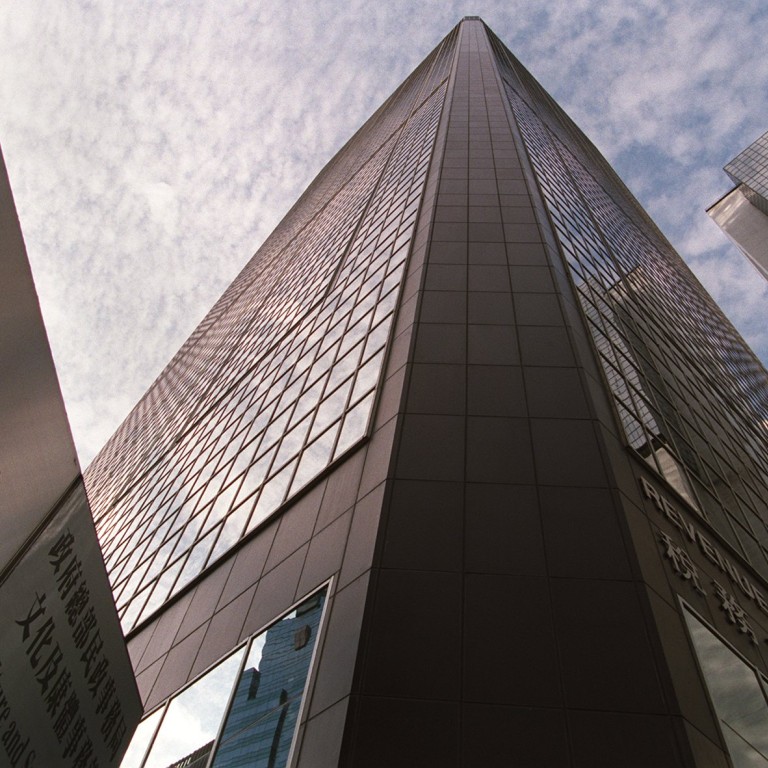
Profits tax low on a businessman’s list of concerns
Bodies claiming to represent businesses clamour for cuts in profit taxes, but in reality most companies do not share their obsession
I've been reading in newspapers that people like myself who run businesses are eagerly awaiting news of a profits tax cut in next week's budget.
Indeed I am, apparently, among those strongly urging the financial secretary to do precisely this.
It is claimed that a tax cut will enhance Hong Kong's image as a business-friendly place, that lower taxes will encourage more investment and goodness knows what else.
On closer examination of these stories, I discover that what are billed as businesspeople's views turn out to be the thoughts of functionaries from business organisations.
Maybe those presuming to speak on our behalf have approached many other businesspeople in Hong Kong, but no one approached me, or anyone else I know.
But a little while ago, I had a rather unsatisfactory chat with someone who claims to speak "on behalf of business"; he told me that my views didn't matter because they were only my own.
Companies have social responsibilities and need to give something back to society
You can't really argue with this kind of tautology, but, for what it's worth, I am uncomfortable with the way these organisations like to portray businesspeople as a bunch of Scrooges, preoccupied by taxation and looking for ways to avoid paying their fair share of the tax burden.
The thing about profits taxes is that they are not a tax on business as such but a tax on profits. In other words, if your business is not making money you don't pay any tax.
Moreover, it is very well known that businesses employ small armies of accountants tasked with the responsibility of minimising tax liability. This is not tax avoidance; indeed it is perfectly legal.
Tax advisers are full of clever ideas for reducing tax liability, and then the government provides a host of generous depreciation allowances for buildings, plant and machinery plus incentives for environmental protection investment.
Thus no company I have ever come across pays 16.5 per cent of its profits to the government. Indeed, although this is hardly a scientifically-based figure, I rather doubt that companies pay tax on more than two-thirds of their profits; most pay less.

Hong Kong profits tax at 16.5 per cent is marginally lower than the equivalent tax of 17 per cent in Singapore, something to note for those who obsess over comparisons with the city state.
However, it is massively lower than the 40 per cent rate in the United States and well below the global average rate of just over 24 per cent. Unincorporated businesses, incidentally, only pay 15 per cent as profits tax.
Despite this modest level of taxation, profits tax accounted for 35.7 per cent of government revenue in 2011-2012. It is by far the most important source of public revenue and raises more than double the amount derived from income taxes.
Thus cutting the corporate tax rate would almost certainly increase pressure for tax rises elsewhere in the system. Meanwhile, it is an efficient and more or less consistent revenue raiser.
However, the alleged spokespeople for the business community portray current levels of profits tax as being onerous and offer, without a scintilla of evidence, the idea that a corporate tax cut will axiomatically lead to more business being undertaken.
The reality is that those of us who dirty our hands with business rarely give a second thought to the level of profits tax; there are far more pressing cost pressures to consider, such as rising rentals and constant pressure for higher wages in a tight labour market.
Meanwhile, many company directors, notably those in listed companies, shift the emphasis of their remuneration away from salaries on to dividend payments, which come to them tax-free, although they are subject to profits tax paid by the listed firms.
We don't hear too much about that, but it is a very big part of the Hong Kong business picture.
Taxation is a subject that fascinates and preoccupies those who claim to be pro-free enterprise. They develop a sort of ideological fetish over taxes, but their zealous approach to taxation is not shared by most of those who spend their time producing the profits in the first place.
The way I look at it, at the risk of sounding slightly self-righteous, is that corporate entities have social responsibilities and need to give something back to society.
Many Hong Kong companies like to be involved in high-profile charity events that boost their brand and spread the feel-good factor in their direction.
However, there is no clearer social responsibility than paying taxes, especially if they are levied only on your profits.
What the government then does with the money raised from taxation is, admittedly, a far more complex matter and worthy of more critical discussion.

